
Upset Workers Stage “5:00 Zoom Exodus,” Leaving Micromanager To Face Angry Bosses Alone
What do you care about more? Having your employees get their work done and good results? Or creating the illusion that everyone’s busy during the arbitrary work hours you set them? Good managers know that flexibility and autonomy can be empowering. Especially in the context of creative work. On the flip side, bad bosses will try to control every aspect of your workflow, even at the cost of efficiency. Sometimes, it takes a dash of malicious compliance to prove to them that their rules are bonkers.
User u/TheBigCahoona43 regaled the r/MaliciousCompliance online group with a tale of how they and their colleagues banded together to get back at a micromanager who gave them strict orders to work only between 9 am and 5 pm. Check out the full story below. Bored Panda has reached out to the author via Reddit, and we’ll update the article as soon as we hear back from them.
Some managers have a very narrow-minded understanding of what efficiency looks like. Their decisions are often unpopular with the staff
Image credits: Procreator UX Design Studio / unsplash (not the actual photo)
One IT worker shared how their department banded together after a micromanager came up with ridiculous new rules to follow
Image credits: Dinielle De Veyra / pexels (not the actual photo)
Image source: TheBigCahoona43
Micromanagement does more harm than good in the long run
Image credits: Jonathan Borba / pexels (not the actual photo)
Micromanagers are bosses who excessively supervise their workers. They often don’t trust their staff to do the work correctly, so they constantly check in and criticize their efforts. They also avoid delegating tasks to others because that means giving up control. Micromanagers tend to focus on the details and miss the bigger picture.
According to Investopedia, micromanagers tend to lower company morale and produce a hostile workplace environment. In other words, you get short-term gains at the cost of long-term results. Most people don’t enjoy being controlled by someone on a microscale. Feedback and deadlines are important, but not at the complete cost of autonomy and respect.
Someone who constantly monitors your progress, demands updates on every project detail, and is never satisfied with the results is most likely a micromanager. The odds are that you know someone like this at work or at a previous company you worked at.
Micromanagers are often set in their ways, and they won’t change overnight. However, the situation isn’t all doom and gloom. For one, these managers could try setting some clear identifiers for a project’s success and then ignoring everything else.
They also need to get used to delegating tasks to their staff without trying to interfere with exactly how they’re doing things. On top of that, they should be willing to hear out their employees if they have any comments or problems.
The general rule of thumb is not to try to fix what isn’t broken. If you’re a new manager and the department is getting great results, then don’t try to overhaul everything the moment you hang up your hat and coat in the office.
Take the time to familiarize yourself with the team dynamics and processes. Get to know everyone. In short, be humble and open-minded. Then, if you spot areas that genuinely could stand to be improved a bit, make some small adjustments and test the waters.
But do not, under any circumstances, make sweeping changes just because you need your ego validated. If you truly want the best for your coworkers and for the business as a whole, aim to empower your staff so that they get the best, most efficient results.
Good managers look for ways to support and empower their staff, not control them with arbitrary regulations
Image credits: Alexander Suhorucov / pexels (not the actual photo)
If you disempower them and force them to completely change the way that they work, don’t be surprised if overall efficiency falls. Not only will your employees have to adjust to your new arbitrary rules, but some of them are likely going to protest against these new policies by working worse to teach you a lesson about respect.
Anyone who’s ever worked a corporate office job knows that their workflow doesn’t fit neatly into the set working hours. It’s not like you get everything done exactly at 5 pm (or whenever you officially have to clock out).
There will be days when you finish way earlier because you’ve been on top of your work. Then, there will be periods when you have to pull (hopefully, well-compensated) overtime because there’s a new project with super tight deadlines or there’s a work emergency.
Also, you have to consider the fact that if you have extremely disciplined, efficient, and intelligent employees, they’ll get their jobs done way faster than the norm. Any good manager would reward them. For instance, by giving them extra flexibility, offering them a raise/promotion, or providing them with opportunities to improve their skills.
On the other hand, bad managers punish super-efficient employees by giving them more work to do. Or they mandate that they must be at their desks, staring at their computer screens, even if they’ve gotten great results and everything’s already done. This is demotivating. There’s little to no incentive to get things done quicker if all you ever have to look forward to is monotony or a bigger workload.
The reality is that the most efficient work hours are going to vary from industry to industry, company to company, department to department, and employee to employee. It’s up to management to find a way to bring out the best in everyone while also creating some structure. Not everyone works at their best when left to set their own deadlines. Nor does everyone thrive when their manager is standing behind them, breathing down their neck.
As the story went viral, many internet users wanted to share their thoughts on what happened
Poll Question
Thanks! Check out the results:
Logging out of the meeting was a great way to get the attention of the higher-ups. I think I (en masse) would have followed it up by forwarding the directives "Dave" sent out just to show what a tool he really is. My working theory is "don't fix what ain't broke" because a supervisors energy is better used elsewhere unless there are problems that he inherited. When a dog is brought to a new place, they will typically p**s there to establish it's "ownership", Dave pissed on and pissed off his team and needs to take his trip to the woodshed like the "leader" he dreams of being.
Manglers need their short penis syndrome addressed in the most humiliating way possible.
Unless you're being promoted from within and know how the team works and the company culture very well, no new manager should make any changes for at least the first week (ideally a month but if things are going badly and you've been brought in to fix it then maybe a week for obvious things). Look and see what people are doing and if you have an idea for a change ask them why they do things in the specific way they do FIRST.
At least 6 months. They need to learn not only what works and why it's being done this way, but ask people what has been tried before that didn't work.
Load More Replies...Logging out of the meeting was a great way to get the attention of the higher-ups. I think I (en masse) would have followed it up by forwarding the directives "Dave" sent out just to show what a tool he really is. My working theory is "don't fix what ain't broke" because a supervisors energy is better used elsewhere unless there are problems that he inherited. When a dog is brought to a new place, they will typically p**s there to establish it's "ownership", Dave pissed on and pissed off his team and needs to take his trip to the woodshed like the "leader" he dreams of being.
Manglers need their short penis syndrome addressed in the most humiliating way possible.
Unless you're being promoted from within and know how the team works and the company culture very well, no new manager should make any changes for at least the first week (ideally a month but if things are going badly and you've been brought in to fix it then maybe a week for obvious things). Look and see what people are doing and if you have an idea for a change ask them why they do things in the specific way they do FIRST.
At least 6 months. They need to learn not only what works and why it's being done this way, but ask people what has been tried before that didn't work.
Load More Replies...
 Dark Mode
Dark Mode 

 No fees, cancel anytime
No fees, cancel anytime 



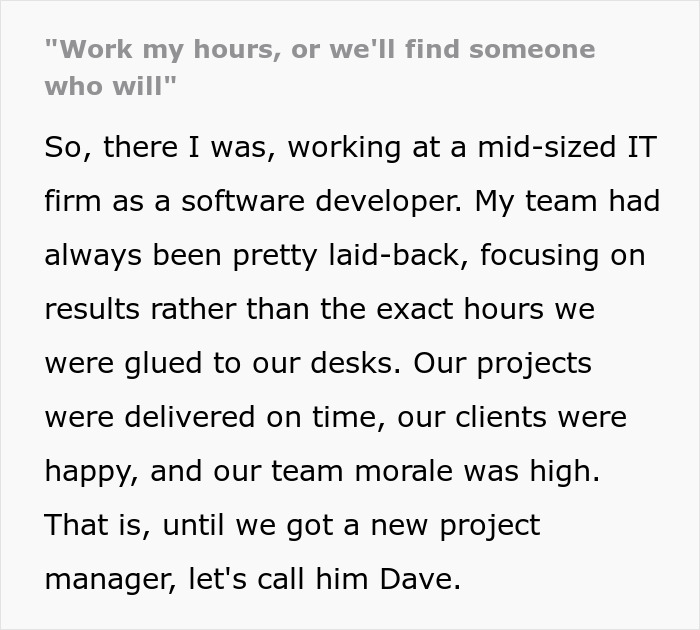
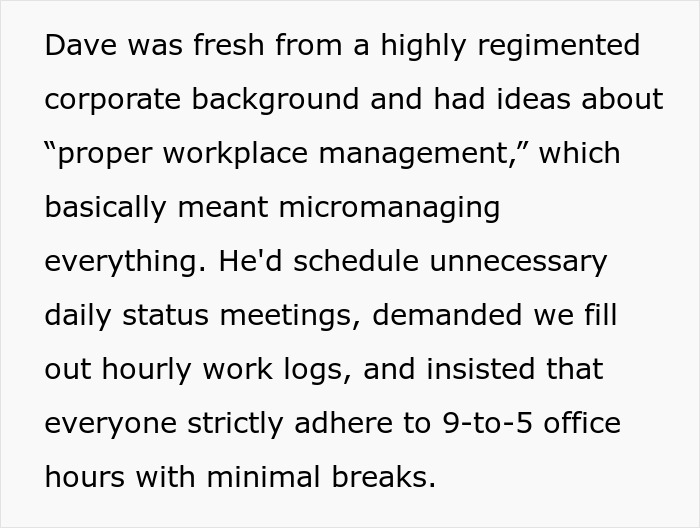
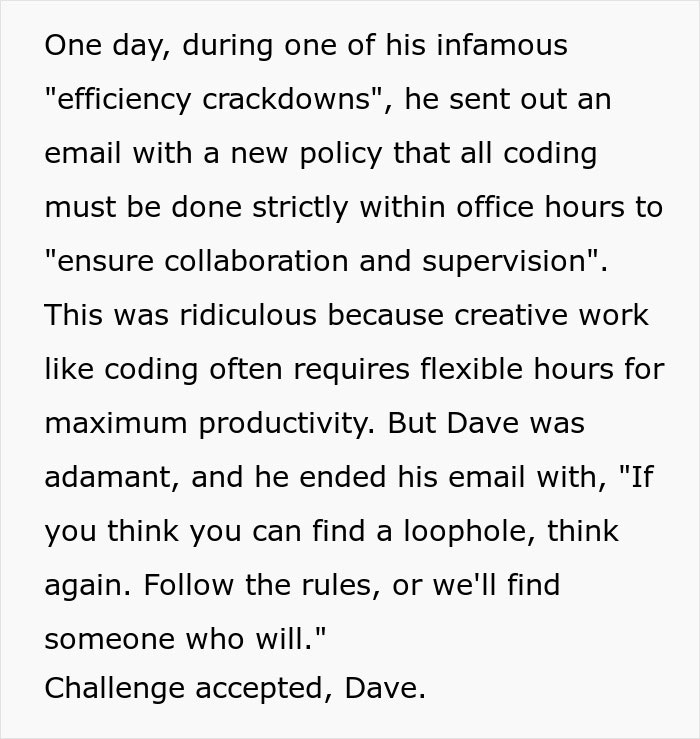
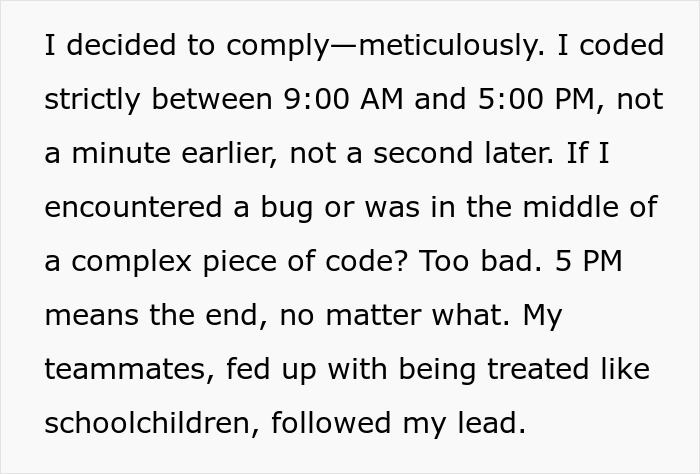
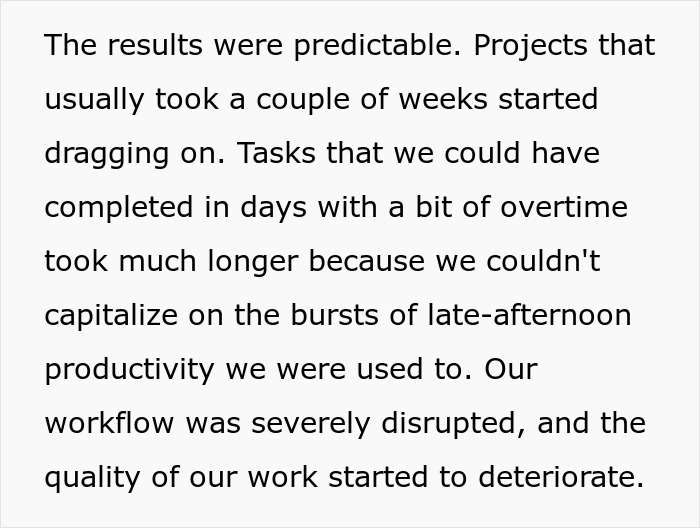

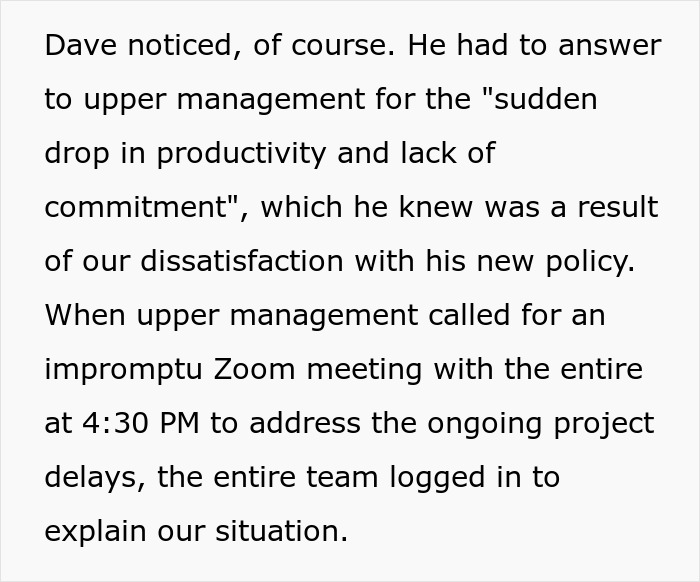
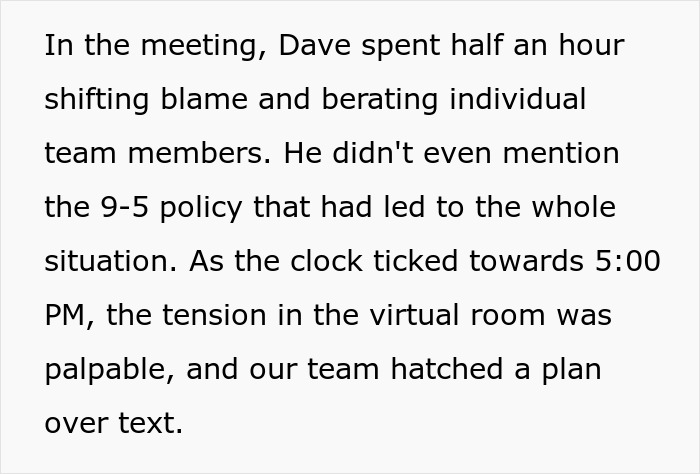
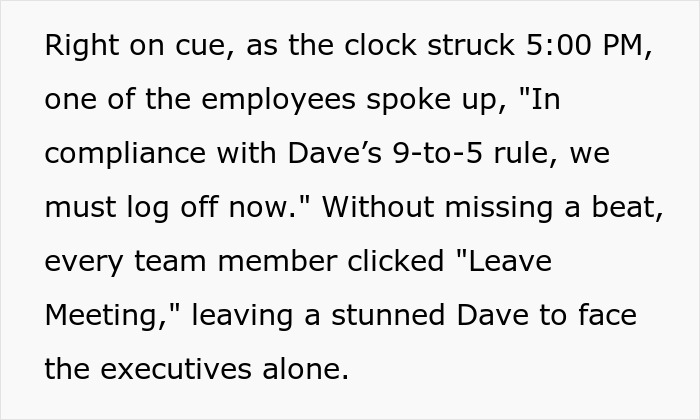
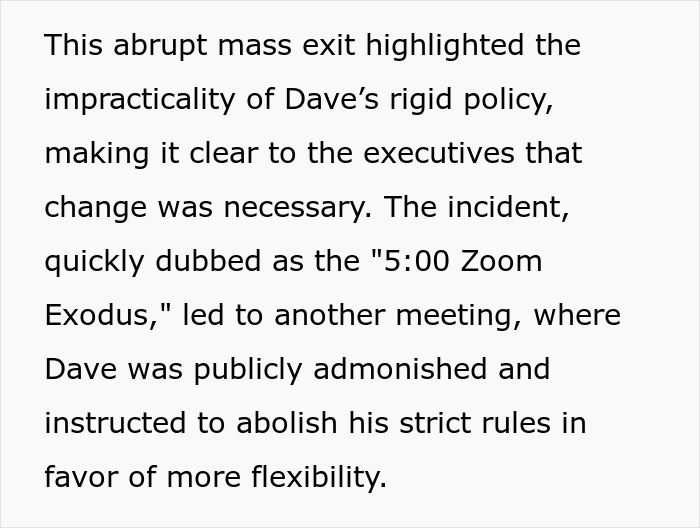
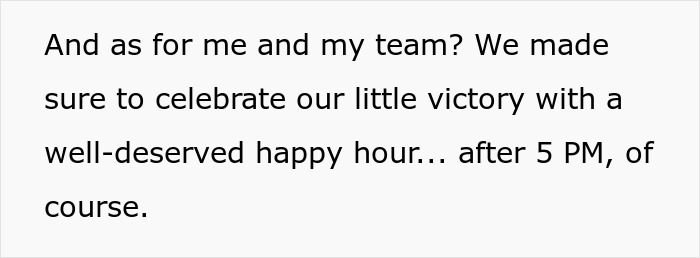




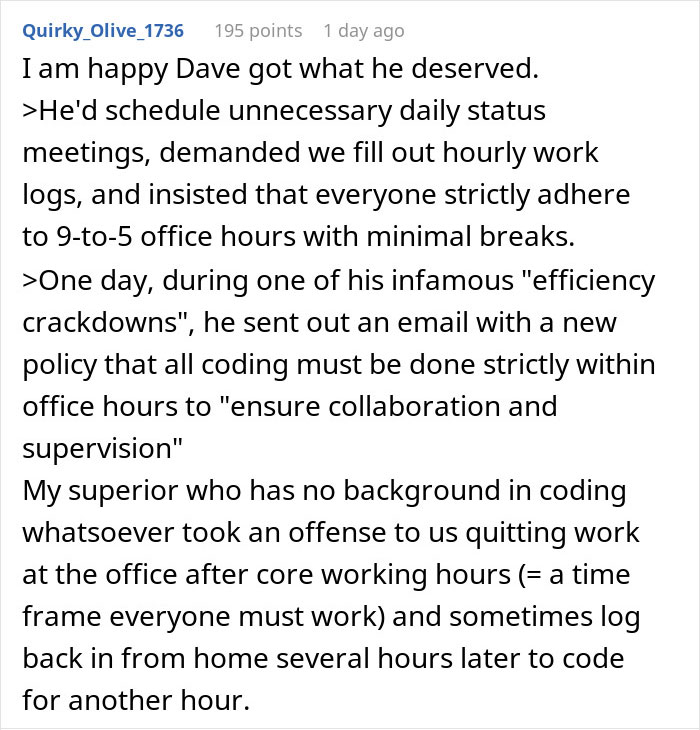
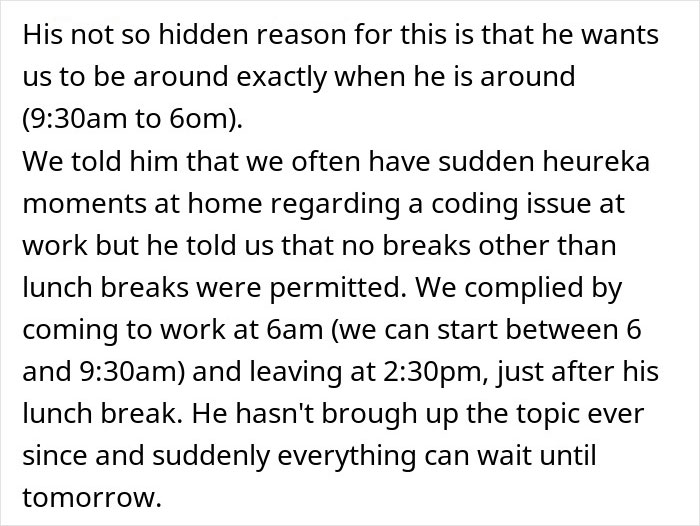
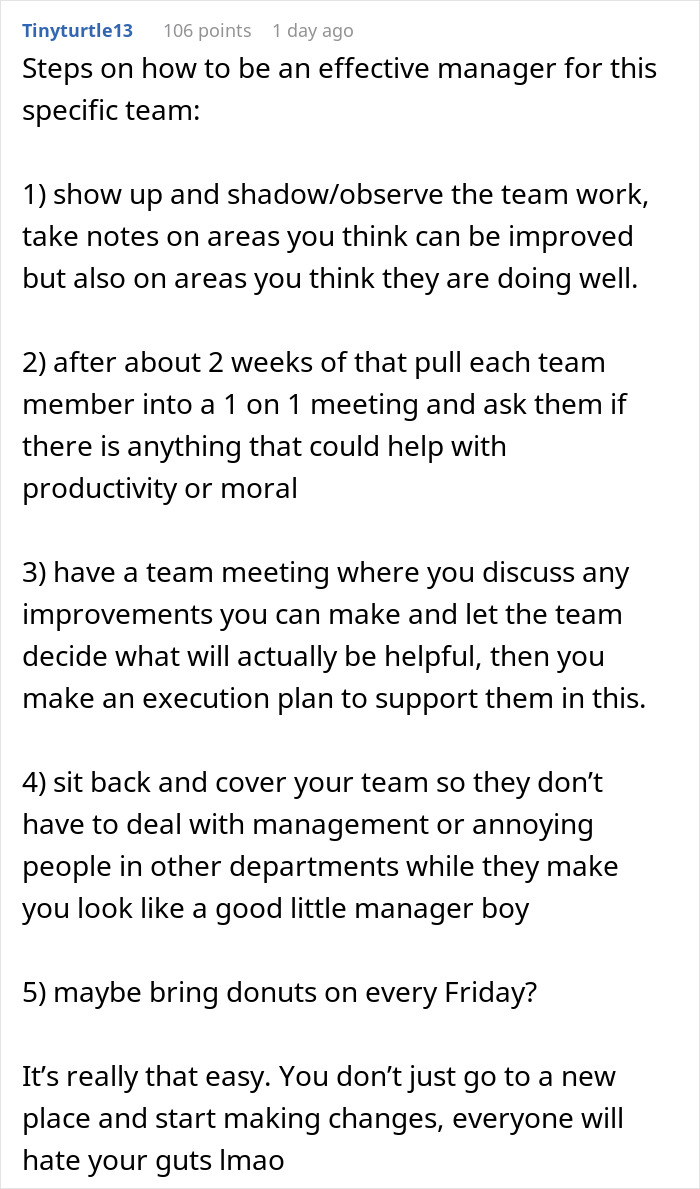

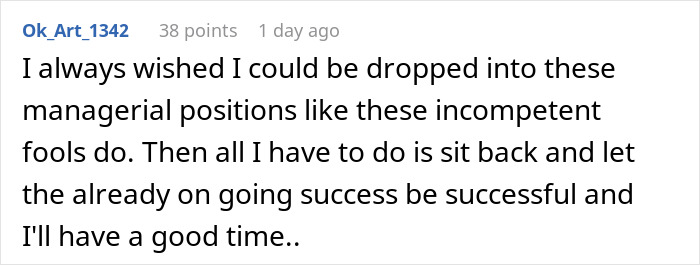
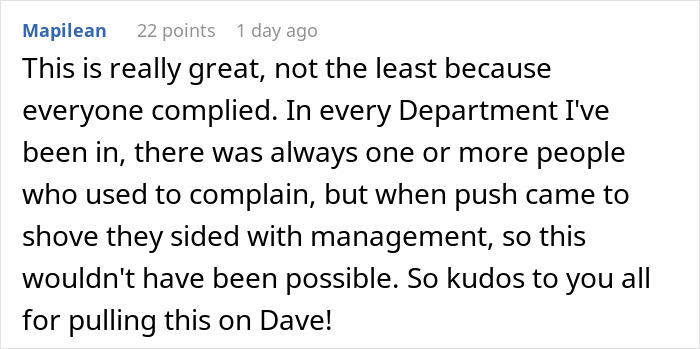

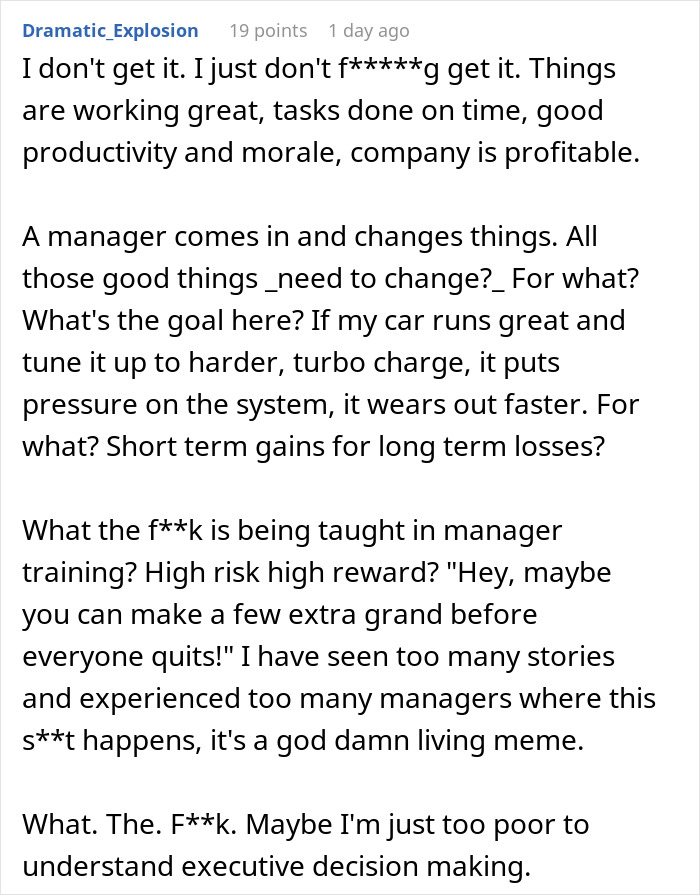


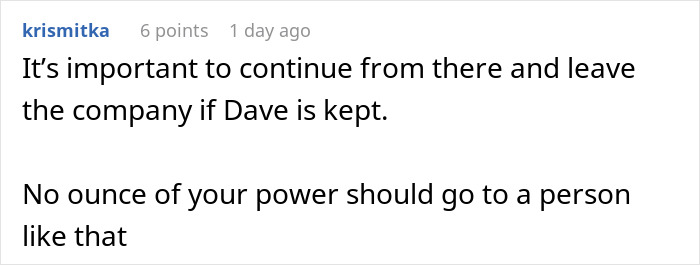
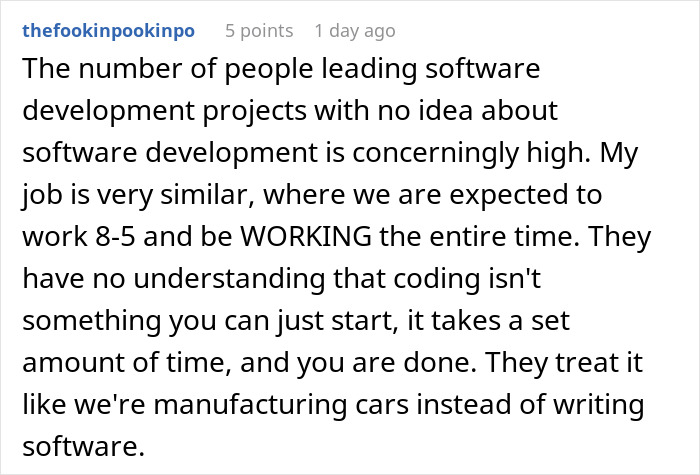







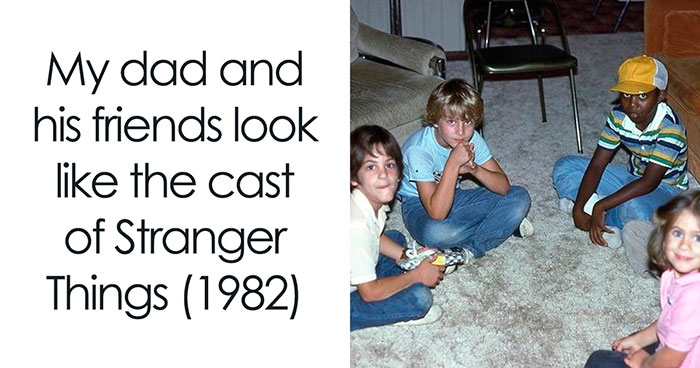



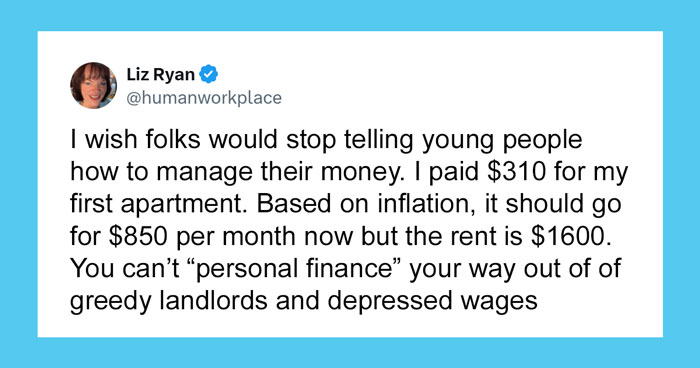














71
15